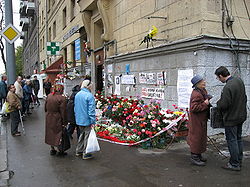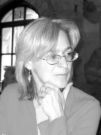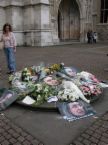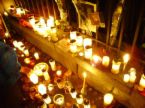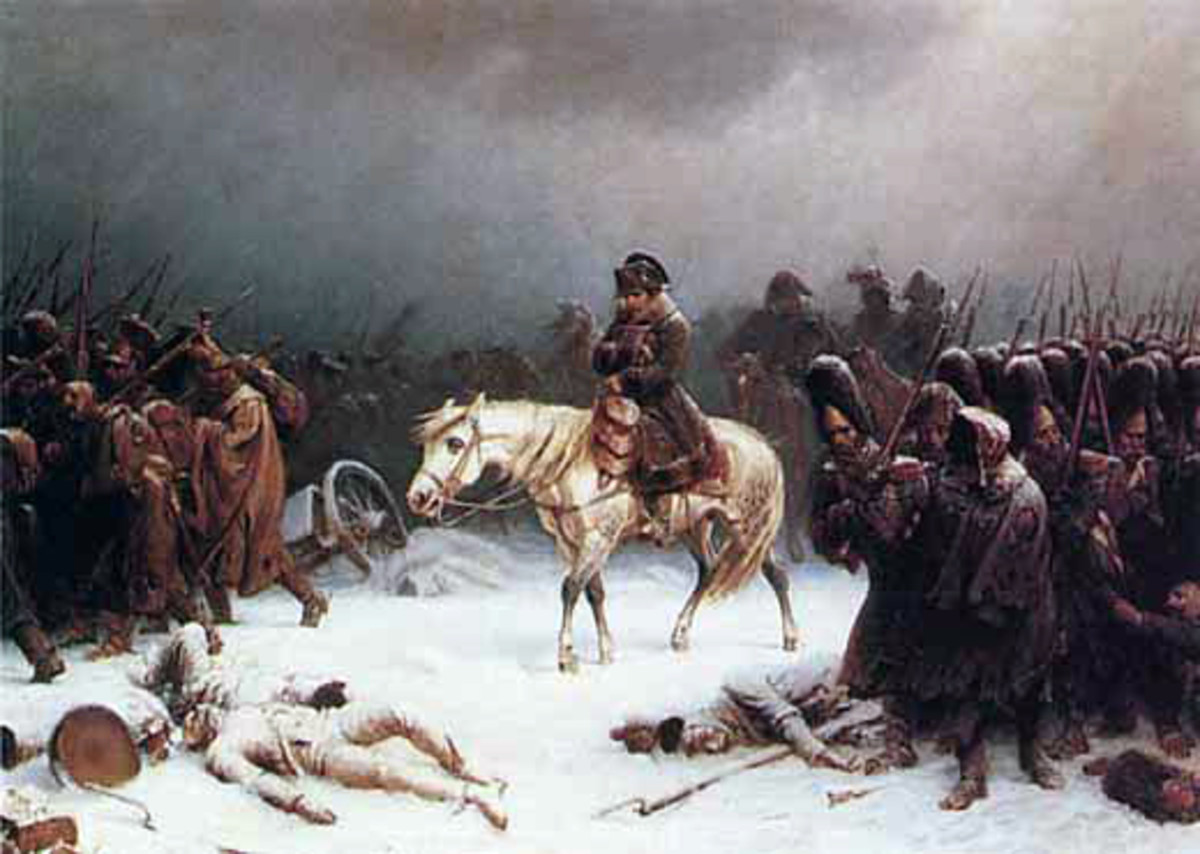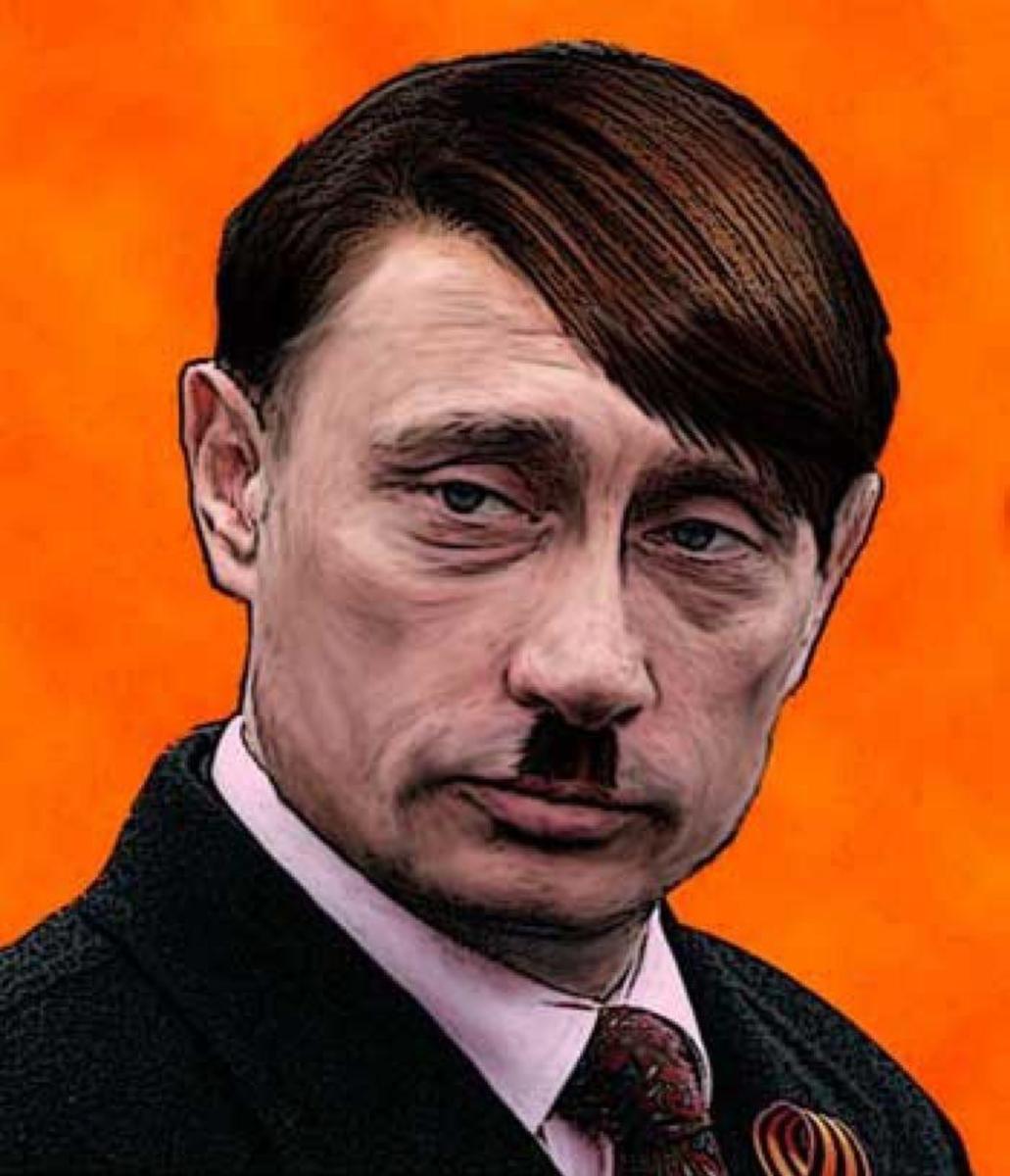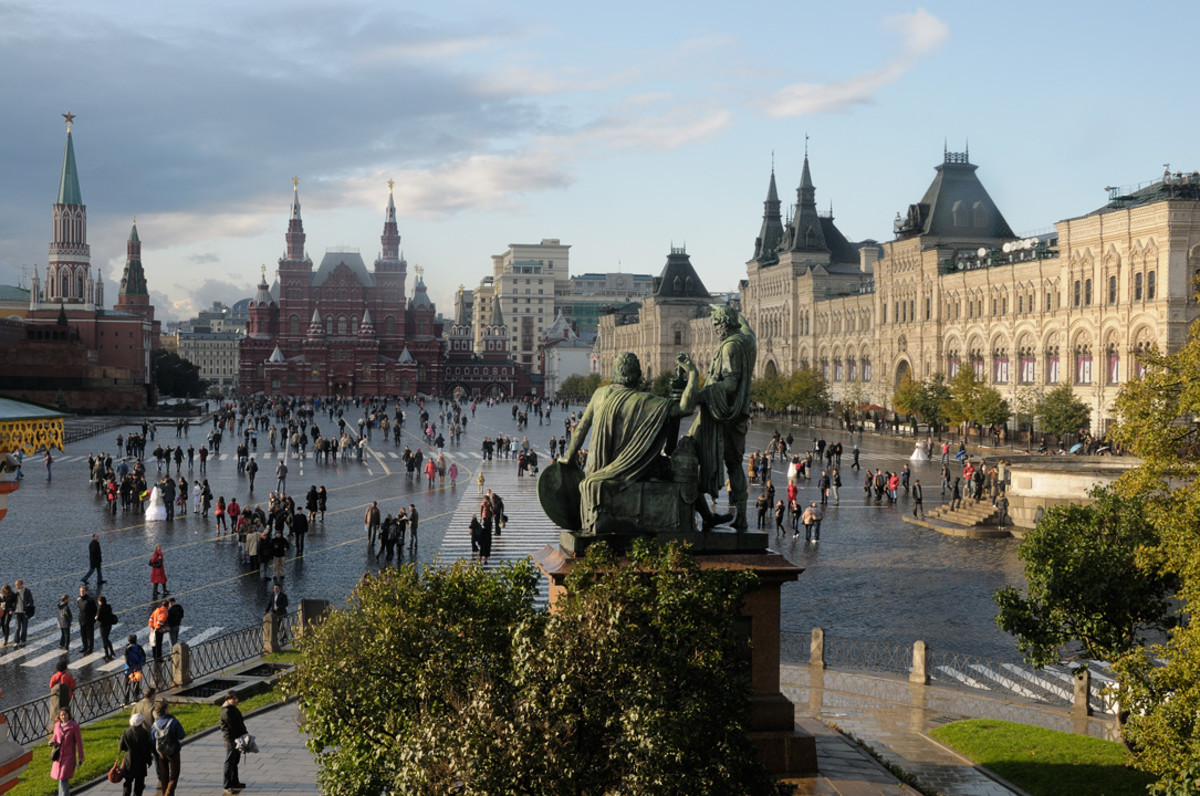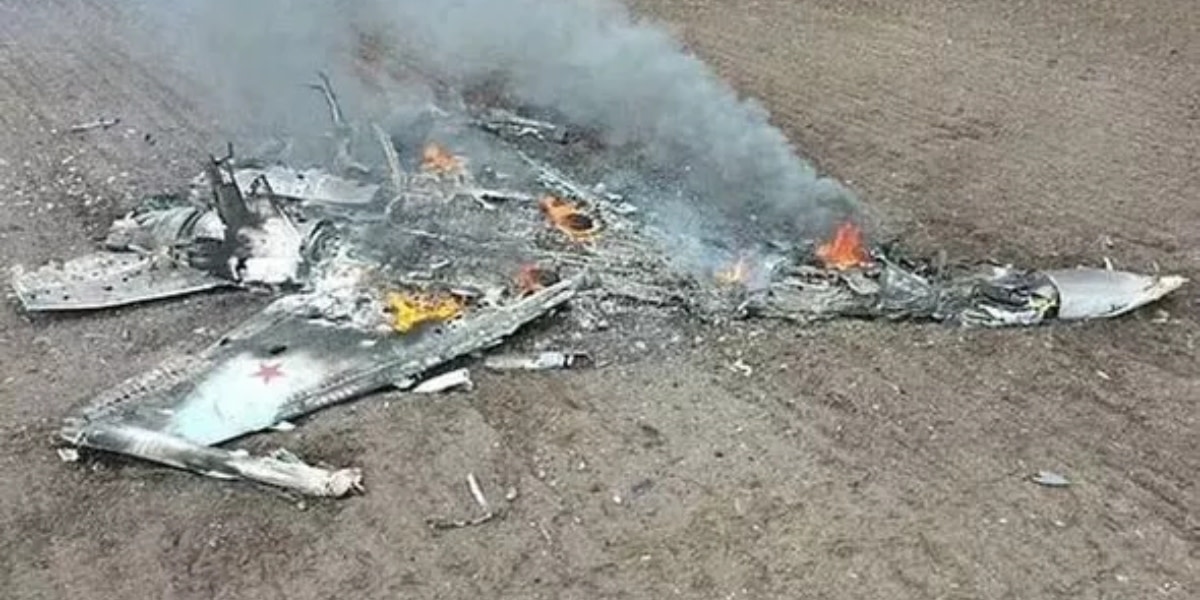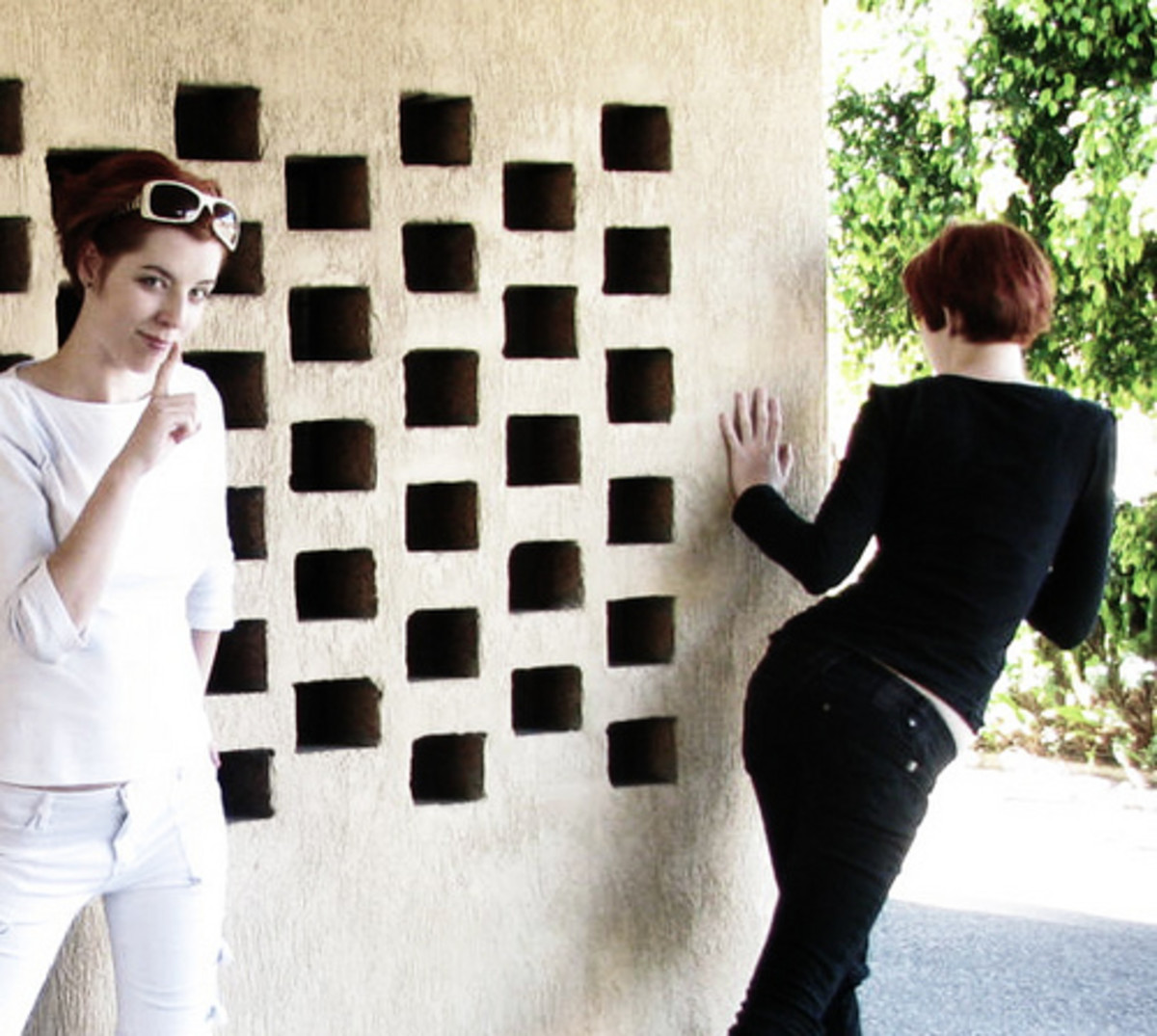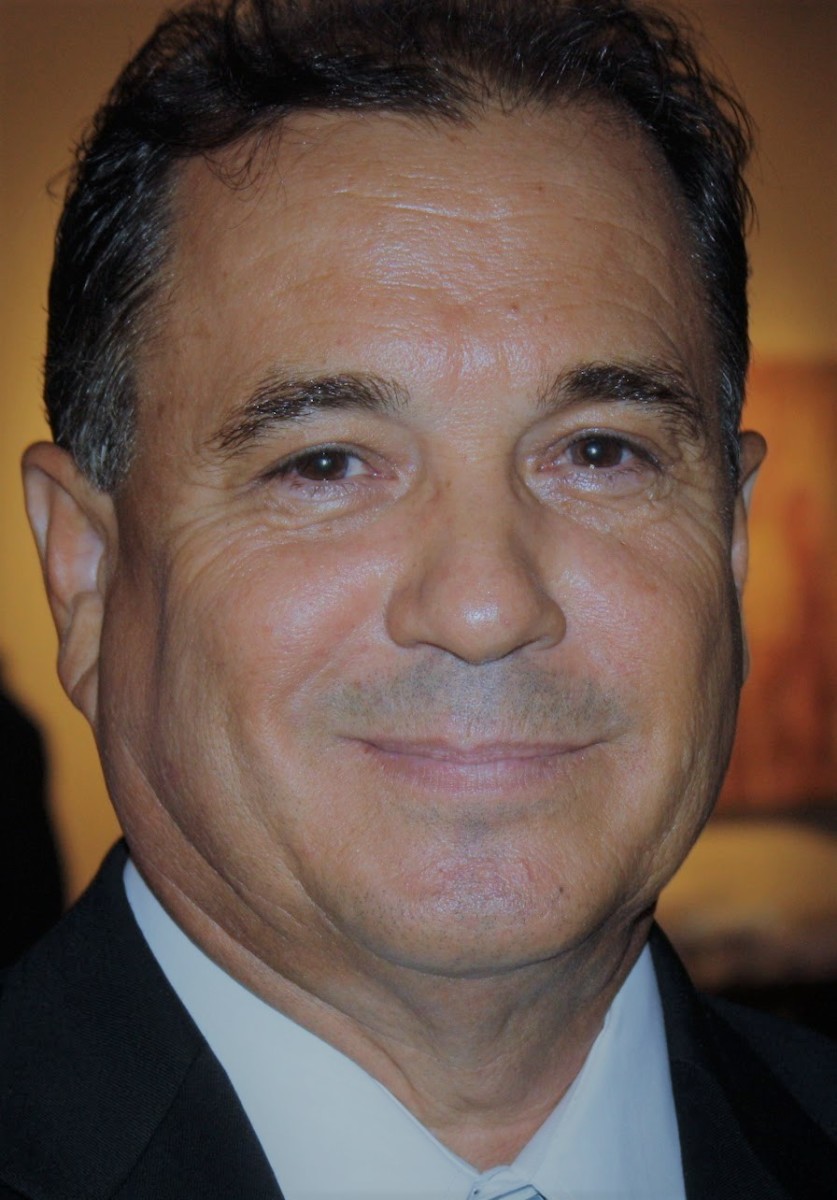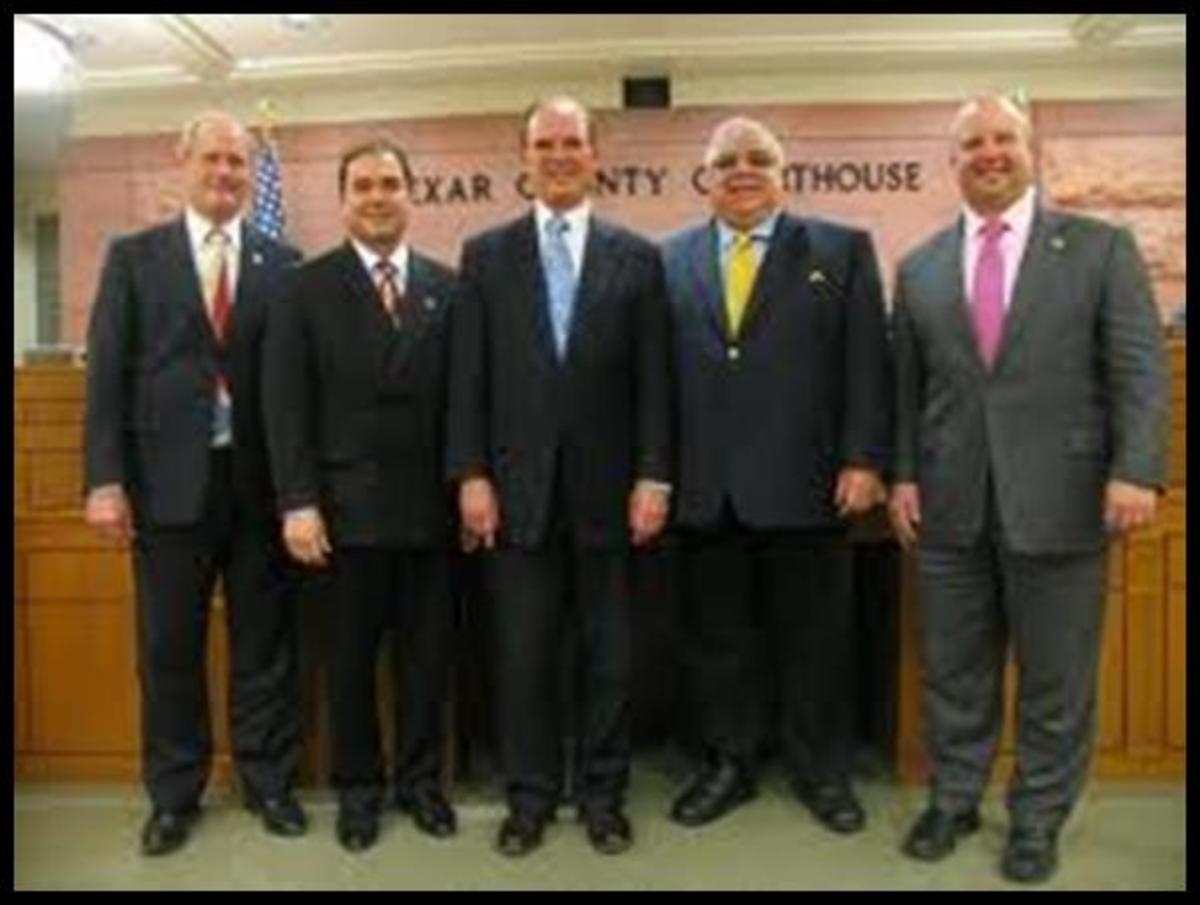The Heinous Execution Of Anna Politkovskaya: The Story

Connection?
I am excited to write this part of my series. You will see not much as changed in the years between the umbrella assassination of Georgi Markov, and cold blooded murder of Anna Politkovskaya. More than likely you will find many similarites. For instance, both were murdered on the birthdays of the political leaders they critized. The years between 1978 and 2006 many journalist would be murdered.
Worldwide just in 2006 (the year Anna was murdered) the death toll for journalists reached the highest point in more than a decade with at least 81 deaths. With murder being the leading cause of death, according to the organizations Reporters Without Borders and the Committee to Protect Journalists. Both of which promote freedom of the press. About 21 journalists have been slaughtered in Russia since March 2000 when Vladimir Putin came to power.
Anna's murder would also have a link to nuclear death of Alexander Litvinenko, who would be poisoned two weeks after the assassination of Anna Politkovskaya. He alledgedly tried to investigate her death. Alexander was writing a book about FSB (formerly called KGB) activities including concentration camps in Chechnya, and Anna wrote about much of the Chechyan human rights abuses; so I think it's safe to say that they were in frequent contact with each other.
As you will find out Anna Politkovskaya was an amazing women, who was silenced for not being afraid to be a voice for the truth.

"People Sometimes Pay With Their Lives For Saying Out Loud What They Think," --Anna Politkovskaya
At a little after 4:00 p.m. on Saturday, October 7th 2006, which is Vladimir Putin's birthday, Anna Politkovskaya had returned from the supermarket to her home, the apartment building in central Moscow, where she lived. She pulled up and parked her modest silver Lada, several yards from the entrance of the building. She carried in two bags of groceries to her apartment. Anna then took the elevator down to retrieve the remaining three bags of groceries and miscellaneous sundries from the backseat of her car.
Around 4:10 p.m. only moments before Anna stepped out of the elevator,
Someone disguised only in a baseball cap, who was apparently not too worried about the posted sign of a security camera, and who must have known the code to enter the building fired 4 bullets into Anna Politkovskaya (journalist, writer, author, human rights activist, critic of Vladimir Putin, mother, and soon to be first time grandmother) after she barely stepped out of the lift... Silencing her forever at the age of 48 years old.
Like many contract murderers in Moscow at the time, the assassin left the weapon at the sceen of the crime. Near the victims lifeless body, was a pistol with a silencer, along with the spent shell casings.
Experts say that the first two shots were fatal, with the bullets hitting near her heart. The third bullet hit her in the shoulder. Then the gunman shot the already dead journalist in the head.
It has been suggested, that Anna's murder was not a typical contract murder. That there may have been no organizer of the "hit" at all. “An excess of initiative may have been shown from below,” an investigator commented. “One of the people fanatically devoted to one of the figures in her publication could have killed Politkovskaya. Some phrase uttered in anger by the official or commander could have pushed him to commit the murder.”
Whoever it was though, the killer accomplished his goal.
Under suspicion are Ramzan Kadyrov (who has been accused of many human rights violations) and the heads of Chechen law enforcement.
The reaction to Anna's murder was felt world wide. On October 8th of 2006, Thousands of people rallied in downtown Moscow to protest the assassination of Politkovskaya. The demonstration was described by the Moscow-based, liberal radio station Echo of Moscow as "the largest protest rally of the opposition recently held in Russia." There were demonstrations and memorial vigils in Moscow, as well as people gathering in St. Petersburg.
Further rallies and vigils took place not only in other Russian cities,but there were also mourners for Anna Politkovskaya in London, Paris, New York, and Washington, as well. More than 3,000 had gathered at the Russian embassy in Helsinki, Finland alone, to pay their respects to Anna. The demonstrations were silent vigils, with people holding candles.
During his visit to Dresden, Germany, on October 10, 2006, demonstrators called Putin a "murderer. In which Putin dignified with this reply reply:
"This journalist was indeed a sharp critic of the present Russian authorities...but the degree of her influence over political life in Russia was extremely insignificant. She was well-known in journalistic circles, among human rights activists, in the West. I repeat, her influence over political life in Russian was minimal." And in my opinion murdering such a person certainly does much greater damage from the authorities’ point of view, authorities that she strongly criticized, than her publications ever did."


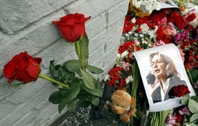
The Heart of Anna Politkovskaya
Born on August 30, 1958, Anna Stepanovna Mazepa spent her first few years of life in the United States. Anna was born in New York to Soviet Ukrainian parents, who worked as diplomats at the headquarters of the United Nations.
Her parents loyalty to Soviet Russia and the Communist Party allowed them to have the highly coveted diplomatic position in the West. Only Communist party members who did not appear to have the potential for defection were granted permission to travel or live in the West. Anna carried dual-citizenship, Russian and American.
Her privileged background was a vast difference from the life of the man whom she would become the greatest critic of... Russian president Vladimir Putin.
In his autobiography Vladimir Putin would recount his St. Petersburg childhood in a vermin-infested communal apartment before he rose through the ranks of the KGB, the Soviet Union's secret police and intelligence agency.
Because of her parents' political status, Politkovskaya grew up with more freedom than most of her peers. Even after Anna returned to the Soviet Union (now Russia) for schooling, Politkovskaya was able to obtain banned books. Anna became an avid reader and a brilliant writer. Because of her passion for the written word Anna had chosen to study journalism in college. Politkovskaya graduated from Moscow State University Department of Journalism in 1980.





Anna Politkovskaya Speaks About Vladimir Putin
"The Conscience Of The Nation."
Anna Politkovskaya began her career as a journalist, shortly after graduating in 1980, at the highly circulated Soviet newspaper, Izvestia. Where she worked as a reporter, and editor of the emergencies and accidents section.
Eventually, Anna took a position with the state-owned airline, Aeroflot, writing for the company's newspaper. One of the benefits of being under the employ of Areoflot was an all-access airline pass. Which was good for free domestic travel anywhere Aeroflot touched down. Anna put this to good use.
Her wanderlust would be the turning point that would transform Anna, from a member of the privileged class, into a well-informed, worldly- experienced journalist. In an interview with James Meek of the Gaurdian, Politkovskaya said, "Thanks to this I saw the whole of our huge country," she would continue to say, "I was a girl from a diplomatic family, a reader, a bit of a swot [nerd]; I didn't know life at all."
The stimulating buzz of witnessing the era of reform opened up by the Soviet leader Mikhail Gorbachev, energized Anna, just as it did for so many of her fellow countrymen, in 1985.
Politkovskaya, with great abandon returned to daily journalism as the noose of censorship of the press began to dissolve. Anna chomped at the bit, taking a job with a pro-democracy newspaper Obshchaya gazeta. which was founded the same month that the Soviet communism finally crumbled, August 1991. The liberal voice of the young weekly newspaper was an ideal forum for Politkovskaya.
As a witness the world-shaking collapse of the Soviet Union, Anna would be there to document the inside-out gridlock that would be the Boris Yeltsin years. An era laced with a volatile mix of new personal and political freedoms, extreme social turmoil, rampant crime and the clueless drifting that was the center of power. But it would Anna reporting from Chechnya, where she would quickly make a name for herself, as a journalist in the late 1990s, She was there for the first Chechen War, Yeltsin's botched and disturbingly brutal campaign that ended in defeat.
Chechnya, the mountainous region in the North Caucasus has had a very long history with the fist of Russia servitude. A boiling pot history that dates back to the early nineteenth century... In the early years of a post-Communist Russia, there had been a small war for independence that Chechen rebels had fought against the Russia federal troops. The result was a withdrawl of Russian troops and a 1997 peace agreement that recognized Chechnya as an independent republic. This bit of government embarassment was mainly due to the public pressure on Russian President Yeltsin, mainly caused by the watchful eyes of the new press freedom available to the media.
Politkovskaya once said of the First Chechen War, "the Russian media's greatest achievement." A rebellion that was documented by dozens of brave reporters, risking themselves to report the conflict from the front lines, in first- hand testimonial. From behind the battle lines the media documented the atrocities of both sides. A Chilling witness to the homicidal frenzy- laced incompetence and ugly brutality of the Russian military leaders. The media brought the bloodsoaked terror of war straight to the Russian people, in a way that was a la Vietnam, the public was appalled is what they had seen being done in the name of their beloved country.
Succeeding Boris Yeltsin in late 1999, as Russian President was former KGB spy, Vladimir Putin. A political rise to power that seemed to appear from no where. Putin ordered the deployment of more troops to extinguish the disorder within Chechnya. There was "unrest" between the Chechen government and Islamic extremists which had alledgedly crossed over to Moscow including a series of bombings in 1999 that were blamed on Chechen terrorists. Some investigative journalists like Anna began to wonder if tragedy had been nudged along by the Russian hardline. Maybe conservatives were creating an excuse to subdue Chechnya for good. This would soon become known as the Second Chechen War.
The Second Chechen War – Putin's war – "was the Russian media's greatest shame," according Politkovskaya. This time, Putin was determined to control the media's coverage to lower public scrutiny, Independent reporting was virtually banned. Government approved media journalists could join Russian forces and report back the gritty but nation proud positive reports of the "battle against the terrorists."
Reporters who went to Chechnya on their own, like Anna Politkovskaya, were blocked at nearly every turn. Those who wanted to report the truth found themselves in danger from both the Russian forces and Chechen freebooters, as the war escalated to new extreme levels of venomous hostility from either side of the battle lines . As usual Anna always brought back the true story, and she laid the facts out before the people, including one gripping tale about the mystery surrounding a mass grave discovered near a Russian military base; the bodies were possibly civilian casualties, and land mines had been planted to prevent their retrieval. Anna already had made herself an enemy in the eyes of many powerful people because of her unflinching reporting , and because of this she was taken into custody. She was accused of spying on the behalf of a Chechen warlord. For three days in February of 2001 she was kept in a pit with no food or water
Anna would keep going back to Chechnya in the war's aftermath, recording the new crimes against humanity and the brutal atrocities of the thuggish Kremlin installed, Chechen leader, Ramzan Kadyrov, and his goon squad regime.
Later that year Anna was forced to flee Russia for a brief time. Rumors started to reach her that one police captain, she accused of human rights abuses in her stories, wanted her dead. Her first book titled, A Dirty War: A Russian Reporter in Chechnya, appeared in English translation , also that same year.

Negotiation And Poison
In October of 2002, a group of heavily armed Chechen rebels stormed a Moscow theater and held 850 people hostage. Making the demand that Russia pull its troops out of Chechya. Journalist Anna Politkovskaya would find herself becaming part of a news story herself. Anna asked to meet with the armed captors, she was hoping to get food and water for the actors, musicians, and theatergoers being held prisoner.
As she wrote in her article for Novaya gazeta, "she waited long minutes before being allowed to meet with a senior commando, and feared for her life," she went on to write, "Masks come and go, the time fading away grips the heart with foreboding, and the senior still doesn't come. Maybe they'll just shoot us now?" Finally, she met face to face with a leader of the rebel group, who graciously apologized to her for the semi-automatic weapon he was carrying. "Even without these explanations, I can see it all already—he's from the generation of Chechens that has been fighting for its entire life," she wrote.
Anna was granted permission to bring in juice and water for the hostages by the commando.
The standoff was nearing the three-day mark, when a special forces unit of the Russian Army stormed the building with the help of a powerful gas. Many have speculated the gas was probably a nerve agent; possibly sarin. All 42 Chechen hostage-takers died, along with 129 civilian hostages. I remember the outrage this incident caused on the news wire.
More incidents began to arise, and so did the level of brutality after the Moscow theater siege. In September of 2004 another group of Chechen rebels took an elementary school hostage in the southern Russian town of Beslan. The children had been assembled for a ceremony in the schoolyard, marking the first day of class for the year. 32 armed, masked men arrived and forced the teachers, parents, and children into the gymnasium. On the third day, a firefight erupted between Russian military forces and the hostage-takers, and more than 300 of the 1,200 hostages died. Upon hearing of the crisis, Politkovskaya immediately boarded a flight to Beslan in order to help negotiate a safer outcome. On her flight Anna became violently ill after drinking a cup of tea while en route. She believed she was poisoned.
By 2005 Novaya gazeta remained among the few independent media outlets that had not been forced out of business by Putin's government. Could that be, because one of the owners was former Communist President Makhail Gorbachev?
Anna Politkovskaya's third book, Putin's Russia: Life in a Failing Democracy, had not even been allowed to be published in Russia in 2004. It was highly reviewed when it appeared in English translation in 2006. In her third book, she chronicled Putin's rise to national political power, and analyzed his strategy for courting Western powers. Putin counted British Prime Minister Tony Blair and U.S. President George W. Bush among his allies, all the while cracking down hard upon civil liberties in Russia. All in the name of fighting terrorism at home and abroad. Does this sound familiar to you America? Think about those homeland security policies.
Much of the book repeated what she had already written in articles about Putin, someone had stated about Anna, "Politkovskaya does what few other Russian commentators dare and steps over an invisible line, mocking Mr. Putin in an intensely personal way; comparing him to Soviet leader Josef Stalin … and to a bland, over-promoted spy who should never have been elevated to the dizzy Kremlin heights."
In Tribute: Anna Politkovskaya
Two days before her murder,Politkovskaya gave a radio interview, on October 5th 2006, in which she discussed an upcoming story she was writing for Novaya gazeta. Asharp exposé on the torture practices linked to a militia group, controlled by Chechnya's pro-Putin prime minister, Ramzan Kadyrov.
Anna planned to file the story on Saturday, October 7th, but was found murdered, shot to death in her apartment building in central Moscow a round 4:15p.m. by her neighors, who all claim not to have heard shots fired due to a silencer on the weapon. A Makarov pistol, which is the weapon of choice for Russian contract killings, and four shell casings were found near her body; the four bullet wounds pointed that this had been an assassination, and not some random act of violence.
The Russian police had confiscated her computer and all her files as part of the murder investigation. The very computer that has Anna's last story. The story that Anna Politkovskaya had written for Novaya Gazeta. The one story she was finishing on the day she was murdered. The very story she talk about in her last radio interview; just two days before her assassination. Her final story that carefully documented the torture suffered under the Kadyrov regime. Sadly Anna's final story will probably never appear now.
While key bits of photographic evidence backing up the story have also mysteriously disappeared, has reported by the Moscow Times.
News of Politkovskaya's death prompted Heads of state from Europe, as well as Blair and Bush, to issue official statements questioning her untimely death. Anna's supporters, as well as human-rights activists from around the world, called it a political assassination. Even the New York Times editorial page chimed in... remarking that she was one of a long line of recent suspicious deaths of Putin's critics. The NY Times went so far as to say,"it would be hard to imagine that Mr. Putin's Kremlin, swollen with oil riches and power, could not find those who ordered her murder or so many others."
President Vladimir Putin did promise a full investigation of her death, but commented also that she was a figure of "minor" importance. The number of mourners who turned out for her funeral on October 10 seemed to contradict that claim. Thousands paid their respects on a rainy Tuesday, among them were Western diplomats, fellow journalists, and ordinary Muscovites.
Anna Politkovskaya left two adult children, a son and a daughter; the product of a marriage that had ended because of her frequent travels to Chechnya and the danger it posed to her. Anna's daughter was expecting at anytime her first child, a baby girl who was to be named Anna, after the baby's grandma.
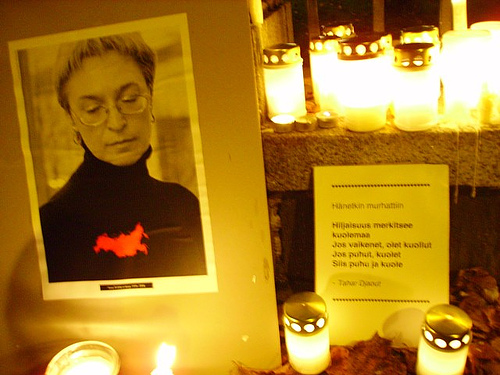
Don't Be Afraid To Speak The Truth Even If Your Voice Shakes
Anna Politkovskaya's death must not be forgotten. This tiny bit of her story is just a flash of the stench of corruption that is preventing the whole truth ot be known. Not to meantion to bring those involved in Anna's murder to justice. I have much to write about in this case and plenty of research to follow up. Unlike the Georgi Markov's murder...Anna's is surrounded by technology. Computer, Survalence Cameras, Recording, and Plenty of her own written words.
Less not forget the many throughout the world who loved, respected, remember, personally met, and mourned her death.... Anna Politkovskaya

